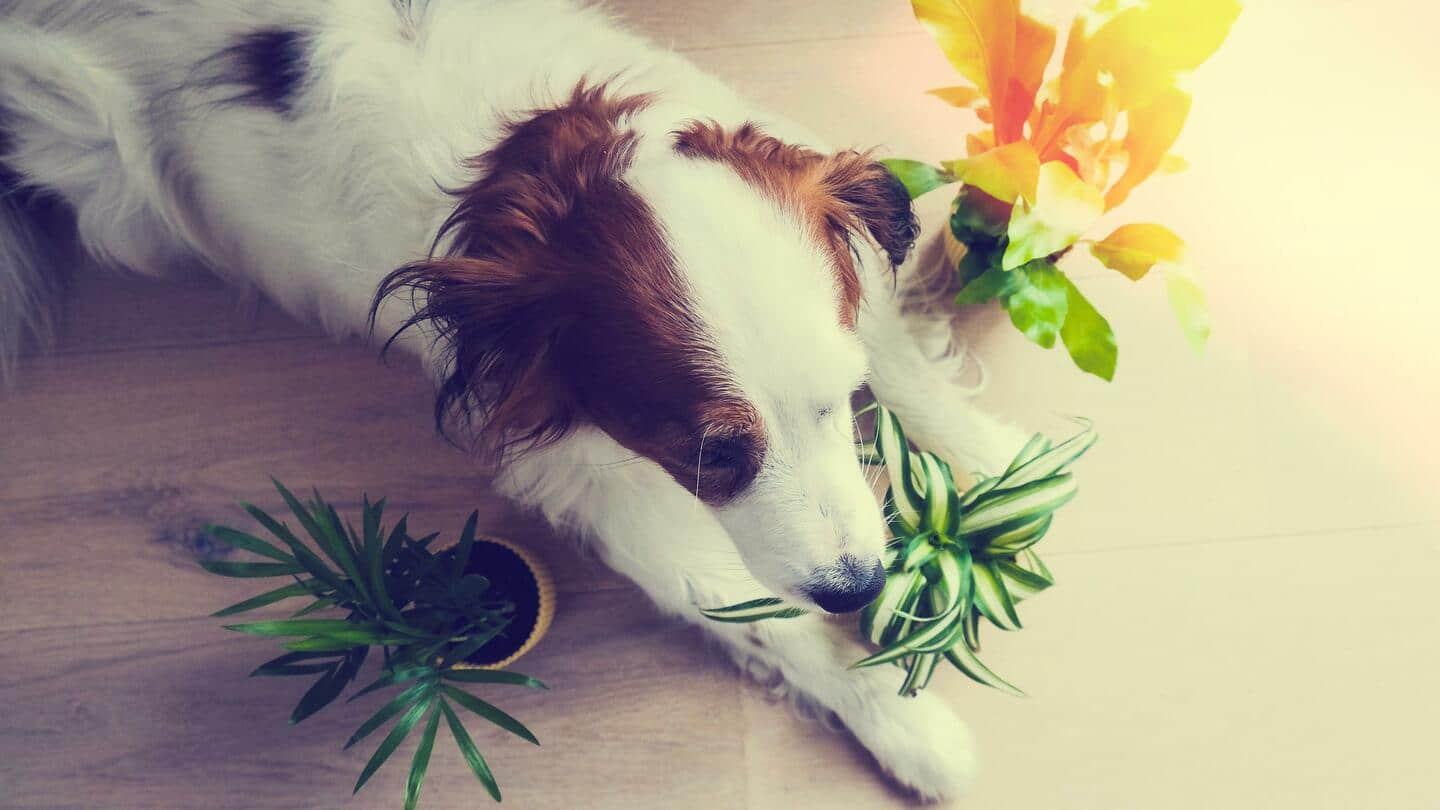
Common houseplants that are harmful to your pets
What's the story
Although houseplants can help purify the air indoors and enhance the aesthetic appeal of your room, some of them can be fatal to your pets.
If you have pets at your home, avoid these five plants.
Or, if you insist on being both a plant and a pet parent, place them strategically so that they are out of reach from your pets.
Beauty is dangerous
Lilies
Don't get enchanted by the beauty of lilies.
As much as they are pleasing to our eyes, they are harmful to your little friends, especially cats.
Your cat might drool, vomit, experience bouts of diarrhea, or show no symptoms at all upon ingestion.
For cats, sometimes, it can be life-threatening.
Though lilies are less harmful to dogs, they can irritate their mouth and stomach.
Natural insecticide
Chrysanthemum
Chrysanthemum contains pyrethroids, which is a natural insecticide. Let that be reason enough to keep it away from your pets.
Pyrethroids can cause irritation in your pet's eyes and nose and harm their digestive system as well.
Your cat or dog might show symptoms like loss of appetite, diarrhea, excessive salivation, or vomiting.
In extreme cases, your pet can suffer liver and kidney failure.
Virtue with vice
Aloe vera
Although considered medicinal for humans, Aloe vera can turn out to be poisonous for your cats or dogs.
Aloe vera plants contain saponins, glycosides, and other compounds.
When ingested by pets, it can result in vomiting, diarrhea, lethargy, and urinary problems.
Excessive consumption of aloe vera leaves can cause anorexia and tremors in them, although this is rare.
Calcium oxalate
Devil's Ivy
Devil's Ivy is truly a devil to your pets.
On ingestion, your pets might immediately show noticeable signs like pawing at face, foaming from the mouth, and vomiting.
The foliage of Devil's Ivy contains insoluble calcium oxalate crystals.
When a pet consumes them, the crystals are released causing moderate to severe swelling in the mouth, making it difficult for them to breathe or swallow.
Oxalate crystals
Begonia
Begonia too contains large amounts of oxalate.
The most toxic part of Begonia is its root.
If your pet bites or chews on Begonia's root, the oxalate crystals break down into oxalic acid, which can cause irritation.
Don't think that since roots are under the soil, your pet is safe. Begonia's leaves and blossoms are quite toxic too.